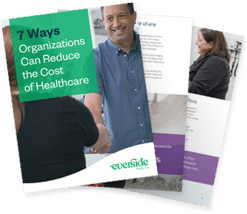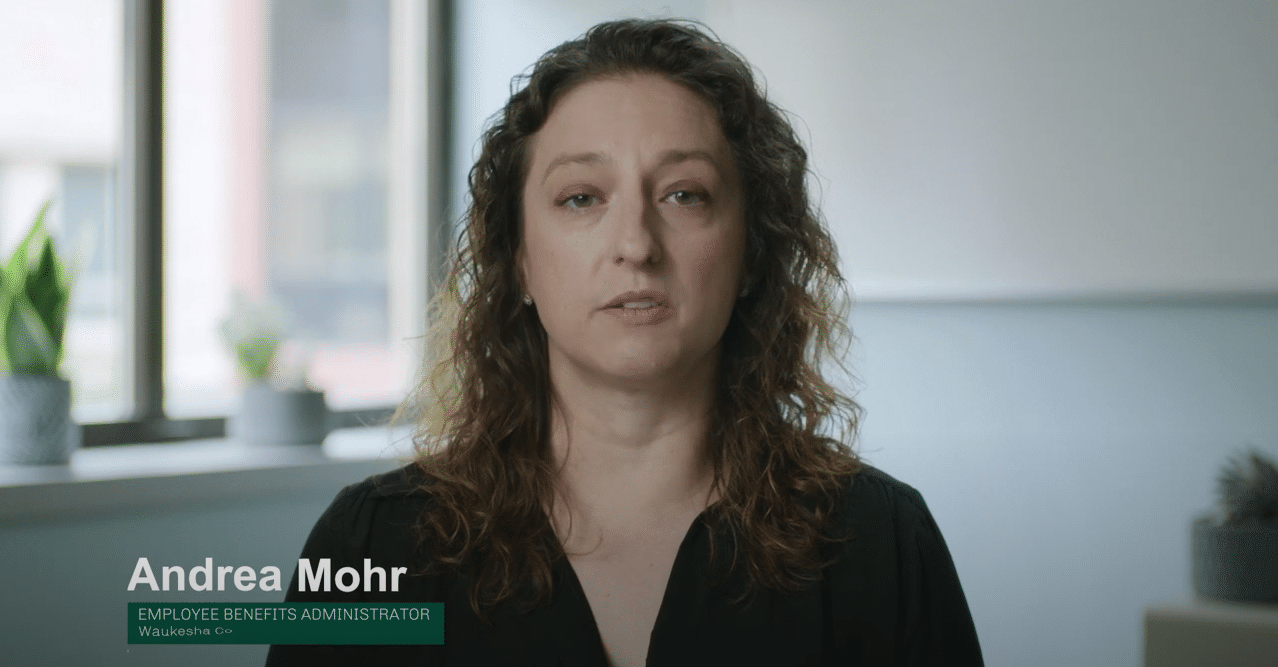Reduce Your Costs & Improve Health Outcomes
Offer your team personalized, affordable Advanced Primary Care and Occupational Health solutions

We’ve joined forces to enable millions of people to live their healthiest lives, one patient at a time.
Your Trusted Partner in Better Health
Predictable Costs
A value-based care approach with a flat per-member, per-month fee.
Flexible Care Delivery Options
Onsite, nearsite, and virtual care options.
Tech-Enabled Predictive Care
Data-driven approach to deliver the right care, in the right place, at the right time.
Customized Care Plans
Best in-class clinical outreach and advanced technology to drive engagement.
You Need a Trusted Partner
The simple fact is the cost of healthcare will continue to rise by 4-7% year-over-year. You need to control costs and still be able to offer attractive benefits. Offering Advanced Primary Care with Everside Health lets you give workers and their covered family members rich healthcare benefits so you can:
Control your healthcare costs
Save up to 17% by year 3 and 31% by year 5
Improve health outcomes
By allowing better access and treating the whole person, you’ll see improved health outcomes
Acquire and retain your talent
Offering quality, cost-effective benefit packages is becoming increasingly difficult, and is key to attracting and retaining talent
Complete Care Built Around the Patient
Everside Health is one of the nation’s largest providers of Advanced Primary Care including mental and occupational health solutions - improving outcomes with tech-enabled predictive care, reducing costs, and providing holistic, customized solutions, in person and virtually, for workers, and their families.
Everside covers up to 90% of your workers’ healthcare needs. When included in their benefits package, your workers will feel valued when they realize they have easy access to the healthcare services they need - all in one place.

Getting Started is as Easy As 1-2-3
You’ll receive expert guidance every step of the way, so you're clear on the process and confident in your new healthcare solution.
Determine Your Population's Healthcare Needs
Your Everside sales consultant makes it easy to understand your Advanced Primary Care solution options and gives you a customized ROI Analysis.
Choose Your Advanced Primary Care Solution
Your trusted partner works with you to personalize and determine which Advanced Primary Care solutions best fit your organization and workers' needs.
Reduce Your Healthcare Costs
We'll be by your side to ensure engagement, cost savings, and improved health outcomes with Advanced Primary Care solutions and tech-enabled predictive patient care.
What our partners are saying






7 Ways Organizations Can Reduce the Cost of Healthcare

The constant rise of healthcare costs demands a new benefits strategy while maintaining worker health and satisfaction. We prepared a simple guide that illustrates seven ways your organization can cut the crippling costs of healthcare.
What you can expect to learn:
- The causes of health plan cost increases
- Projections of health plan cost increases for organizations
- Cost saving strategies to help you reduce the impact of health-related costs
- Introduction to the Advanced Primary Care model
- How to identify a trustworthy Advanced Primary Care provider
Get Your Copy
Resources About Advanced Primary Care
Stay up-to-date with news, education, and informative content that’ll keep your finger on the pulse of the latest and greatest in innovative healthcare solutions.
The Traditional Healthcare Benefits Model Is Broken — Are You Ready for Change?
Offer your workers a new benefit they’ll love.
- More time with a personal provider.
- Better access to care — in-person and virtually.
- And save you — and your workers — money.




